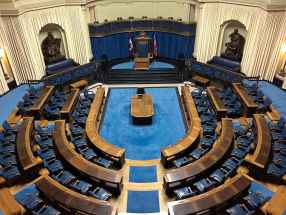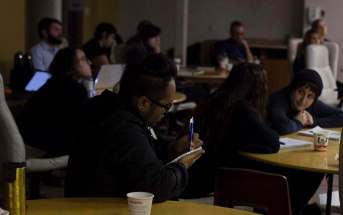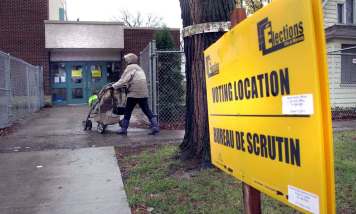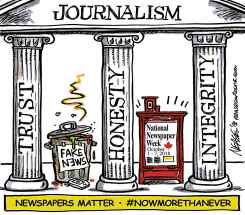Informed voting fundamental to democracy
Read this article for free:
or
Already have an account? Log in here »
To continue reading, please subscribe:
Monthly Digital Subscription
$0 for the first 4 weeks*
- Enjoy unlimited reading on winnipegfreepress.com
- Read the E-Edition, our digital replica newspaper
- Access News Break, our award-winning app
- Play interactive puzzles
*No charge for 4 weeks then price increases to the regular rate of $19.00 plus GST every four weeks. Offer available to new and qualified returning subscribers only. Cancel any time.
Monthly Digital Subscription
$4.75/week*
- Enjoy unlimited reading on winnipegfreepress.com
- Read the E-Edition, our digital replica newspaper
- Access News Break, our award-winning app
- Play interactive puzzles
*Billed as $19 plus GST every four weeks. Cancel any time.
To continue reading, please subscribe:
Add Free Press access to your Brandon Sun subscription for only an additional
$1 for the first 4 weeks*
*Your next subscription payment will increase by $1.00 and you will be charged $16.99 plus GST for four weeks. After four weeks, your payment will increase to $23.99 plus GST every four weeks.
Read unlimited articles for free today:
or
Already have an account? Log in here »
Hey there, time traveller!
This article was published 02/10/2018 (2630 days ago), so information in it may no longer be current.
It’s usual, in the weeks before an election, to hear slogans reminding us, “Voting is your right and responsibility.” Such a sentiment is commendable, but incomplete. Democracy is better served if the slogan is adjusted to read, “Voting is your right and responsibility. But get informed first.”
Winnipeggers are already voting in advance polls that opened Monday for the Oct. 24 civic election which, unusually for Winnipeg, includes a referendum question.
Voting can give citizens a heady feeling that they are doing their democratic duty, but the process is undermined by people who check off boxes without first doing a minimum level of research into the candidates and the issues.

Voting is a privilege. But the privilege should include the effort it takes to vote with discernment.
Becoming a knowledgeable voter may mean reading a candidate’s campaign information with an open mind but a healthy skepticism, weeding out banal generalizations, such as “I’ll make downtown safer,” and searching for evidence the candidate has backed up promises with research and specific details of funding.
It may mean attending a candidates meeting, or reading news coverage of such events. Watching candidates in action can provide an opportunity to judge the candidates’ skill in presenting their ideas and engaging in debate with others, both skills that are essential in politics. It can also help us make up our minds about candidates who, for example, propose a “negative-toll bridge” that would pay people to visit the North End.
It should mean educating ourselves on the referendum question about whether the Portage and Main intersection should be opened to above-ground pedestrian traffic. What effect would a reopened intersection have on vehicular traffic, including buses? What would be the benefits to the community that lives and works downtown? What will be the final cost?
When the votes are counted, one cast for a trivial reason (“He’s got a nice smile, I have a good feeling about him”) is accorded the same weight as a vote cast by someone who has invested time in researching the candidates’ positions on issues of importance to the future of Winnipeg.
A good place to start is by searching out candidate profiles on news sites, including winnipegfreepress.com, and the comprehensive City of Winnipeg site.
Mayoral forums provide an opportunity to see the candidates in action — such as one sponsored by the Winnipeg Free Press and WinnipegREALTORS on Thursday at 7 p.m. at the Centre culturel franco-manitobain. Granted, the forums that include fringe candidates can get bumpy, with interruptions, non sequiturs and acrimonious challenges. But so do meetings of city council and council committees. Watching how would-be mayors handle messy forums can be a good indicator of how they would handle messy council meetings if elected.
The weak links in democracy are the citizens who don’t vote, or vote for superficial reasons. Perhaps those in the latter category vote for a candidate solely because they recognize the name from a sign on their neighbour’s lawn, or because they mistakenly think they have to check all the boxes even if they don’t know any of the school-board candidates, or because they liked a candidate’s clever tweet, or because a candidate “looks trustworthy.”
The strong links in democracy are the voters who take the time and effort to become informed, and cast their ballots wisely.
On Oct. 24, vote. But vote responsibly.
History
Updated on Tuesday, October 2, 2018 10:42 PM CDT: fixes broken links










